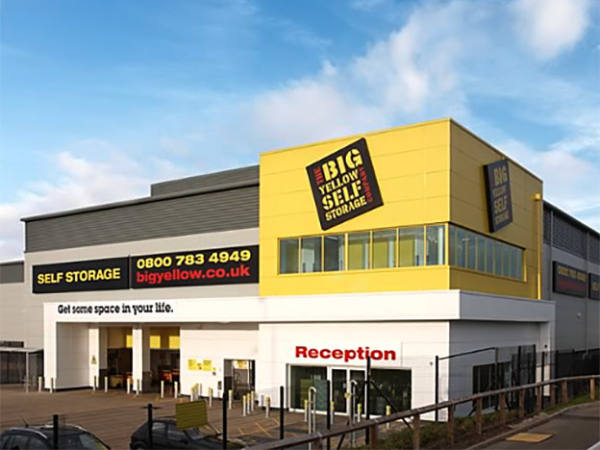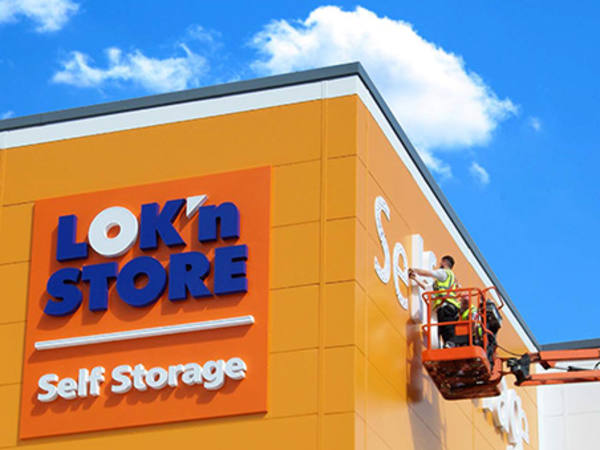- A surge of retail investors has created a real opportunity
- Raises critical questions about education and cost
Over the past year, investment platforms have enjoyed a roaring trade. Not only has market volatility proved fertile ground for stockpickers, but forced lockdowns have left swathes of people with bolstered savings and time to plan their finances.
Activity across the board has been impressive. Hargreaves Lansdown (HL.), the UK’s largest do-it-yourself investment platform with 1.5m customers, attracted over 220,000 new clients in 2020, a 60 per cent increase on the previous year. The broker has also gradually been recruiting younger investors, with the average age of new clients slipping from 45 in 2012 to 37 today.
Rival AJ Bell (AJB) also had strong growth increasing its platform customer base by 30 per cent last year, to almost 300,000. More than half of its new users are under the age of 40, compared with 38 per cent overall. interactive investor, meanwhile, whose flat fee model can be attractive for higher value portfolios, gained 41,500 net new clients last year, up from 15,400 in 2019.
But the success of traditional platforms to attract the next generation of investors may have been overshadowed by the enormous growth of commission-free players. Freetrade, a mobile-only app with an average customer age of 31, has exploded in popularity turning 50,000 customers in January 2020 to over 500,000 today. In January alone, 150,000 accounts were set up as speculators rushed to cash in on the Reddit frenzy targeting shorted stocks.
Global platforms eToro and Trading 212, which offer derivatives trading as well as commission-free stock picking, have also seen rapid growth in the UK. eToro added roughly 100,000 new customers in the UK last month and half a million last year. Trading 212 was the most downloaded app in the UK at the end of January and it has suspended the opening of new accounts owing to “unprecedented demand”.
Will the commission-free trading boom last?
In January, Freetrade’s most traded stocks included GameStop, AMC Entertainment and Blackberry, all of which had been feverishly bid up by the Reddit crowd. While these stocks cropped up on the best buy lists of most platforms, the worry is that speculators rushing to join the hype will be badly burned when reality sets in. Indeed, GameStop’s share price fell 80 per cent in the week following its price peak in late January.
Commission-free investment providers have laudable aims of democratising investing to make it more accessible, but, as we discussed in our cover feature of 20 November, there is a concern that these apps gamify the investment process by offering free shares and tempting people into the market’s hottest stocks.
They also offer fractional share trading, which could be a double-edged sword. While it gives people an entry point to the market’s most expensive shares, it also means you cannot transfer your share fractions to another broker should you wish to and it might encourage speculative behaviour.
There is a natural tension between new fintech investing apps’ need to attract customers to survive and the amount they can afford to spend on investor education. While brokers such as Hargreaves Lansdown have extensive educational material to help investors, lively communities of commission-free players may be indulging excessive risk taking.
Before joining a commission-free trading platform, it is important to understand how their business works. eToro and Trading 212 make most of their money out of derivatives trading through a significant margin on the spread. While they do not make money on share trades, the hope is that customers will later be attracted to more lucrative products. Trading 212’s website states that 76 per cent of its customers lose money trading contracts for difference (a form of derivatives trading), so users need to understand what they are letting themselves in for.
Freetrade only offers stock investing, and makes money through a foreign exchange charge of 0.45 per cent, and a premium subscription account which costs £9.99 and gives access to more stocks. Australian trading app Stake, which launched in the UK last March giving direct access to the US market, has a similar business model, with investors paying $9 per month for ‘Stake Black’ and a foreign exchange charge of 0.5 per cent.
To date, few people have seen the commission-free trading apps as serious competition to the incumbent platforms. Time and again surveys show that investors value user experience and reputation as more important than price, and these new trading apps have restricted stock lists and limited portfolio analysis tools.
In a recent presentation, James Hamilton, analyst at brokerage Numis, said he does not see lower cost options driving material switching between platforms. Hargreaves Lansdown’s client retention level of 93 per cent indicates that its users are happy with its service, but this may not tell the whole story if its customers are also trying out accounts on the side elsewhere.
Hamilton believes that Hargreaves Lansdown and AJ Bell will retain their market share because “pricing only ever goes down and as it does, the minimum efficient scale increases”. This means new players need an increasingly large asset base in order to be viable, and Hamilton says this is why most challengers have failed and he believes those that remain, such as Freetrade or Vanguard Investor UK, “will probably never make a profit”.
If your broker goes bust, under UK law your assets should be ring fenced so you should not lose your money. But there could be a period of months while you are unable to trade as the administration process takes place.
Not to be dismissed so quickly
On the face of it, the service and product offering of traditional platforms are very different from commission-free players. While the target customers of the former tend to invest in funds and build wealth over a lifetime, the neo-brokers aim simply to give the cheapest possible access to exchanges. Hargreaves Lansdown’s average customer individual savings account (Isa) size is £48,500, compared with roughly £4,000 for Freetrade.
But as traditional platforms start to see more direct stockpicking activity, their cheaper cousins will pose as more direct competition. In 2020 Hargreaves Lansdown conducted 6.5m equity trades, up 123 per cent year on year, and the platform’s revenue on shares increased by 148 per cent to £113m. Its revenue across funds for the year was consistent with previous years.
When Freetrade surveyed its customers about a year ago, 74 per cent of them had accounts with other brokers. They now estimate that about 35 per cent of their customers have brokerage accounts elsewhere – a huge fall. This reflects two things: a cohort of investors who have slowly transitioned their money across from traditional brokers, as well as new investors setting up an account for the first time.
There are also reassuring signs that younger investors may not be taking excessive risks en masse. Freetrade says that of their customers aged 18 to 25, 60 per cent of their accounts are invested in either exchange traded funds or investment trusts. The under 25s make up a fifth of their customer base – about 100,000 people. While these accounts may be small now, if they can keep them they might pose serious competition over time. Interactive investor, the UK's second-largest DIY platform, shows a similar trend, with its 18-24 customer age bracket holding the highest proportion of investment trusts and the lowest proportion of direct equities of all its age bands.
Syed Usman Shah, entrepreneur and founder of consultancy Diversity Hut, told Investors’ Chronicle that he opened his first investment account with Hargreaves Lansdown last March, because he wanted to make sure he was with a reputable broker. However, he says he has recently moved all of his money over to Freetrade, so he is free to deal when it suits him without paying a £10.95 dealing fee. He was also attracted to Freetrade’s more modern interface. “While Hargreaves Lansdown feels like a traditional financial institution, Freetrade has more of a community feel,” he says.
There’s an important distinction to highlight between commission-free platforms in the US and those in the UK. In the US, brokers such as Robinhood receive payment for order flow, which means they make more money as more people trade and it can prevent customers from getting the best possible price. This practice is illegal in the UK.
Freakishly high trading volumes have put all platforms under a lot of pressure on a number of occasions recently. While it may be intuitive that bigger players should be more resilient in coping with large trading volumes, “this has not been the case so far”, says Jeremy Fawcett, founder of consultancy Platforum.
Customers of Hargreaves Lansdown, AJ Bell and Fidelity Personal Investing all experienced trading delays when Pfizer’s vaccine news triggered large share price movements in November. Freetrade briefly had to disable the purchase of US stocks because its foreign exchange provider imposed hefty restrictions on trading volumes in late January, but the app was back to full service on the next business day.
Analysts fear that low-cost providers will never be able to turn a profit. But the fat margins made by their competitors suggest that competition on cost is a welcome dynamic. Hargreaves Lansdown’s net profit margin is one of the most attractive in the FTSE 100 at 55 per cent last year, according to Financial Times’ Market Data. AJ Bell, meanwhile, has a net profit margin of 30.63 per cent. The difficulty for the commission-free players will be achieving sufficient scale.
| Platforms with US exchange access | |||||
| Annual charge (shares) | Share dealing fee | FX charge | Ability to hold USD in account | ISA option | |
| AJ Bell Youinvest | £42 | £9.95 | First £10,000, 1.00%, next £10,000, 0.75%, next £10,000, 0.50%, value over £30,000, 0.25% | No | Yes |
| Degiro | £0 | £1.75-£5 | 0.10% | Yes | No |
| eToro | £0 | £0 | 0.50% | Yes | No |
| Freetrade | £0 (£36 ISA) | £0 | 0.45% | No | Yes |
| Hargreaves Lansdown | £45 | £11.95 (£5.95 if 20+ trades made previous month) | First £5k 1.00%, next £5k 0.75%, next £10k 0.50%, Over £20k 0.25% | No | Yes |
| IG | £96 | UK shares: £8 (£3 if 3+ trades made previous month) US shares: £10 (Free if 3+ trades made previous month) | 0.50% | Yes | Yes |
| interactive investor | £120 | £7.99 (1 free trade per month) | First £25k 1.5%, next £25k 1.25%, next £50k 1.00%, next £500k 0.50%, over £600k 0.25% | Yes | Yes |
| iWeb | £0 | £5 | 1.50% | No | Yes |
| Stake | £0 | £0 | 0.50% | Yes | No |
| Trading 212 | £0 | £0 | 0.50% | Yes | Yes |
| Source: Providers | |||||








